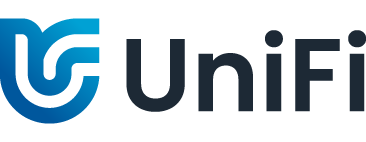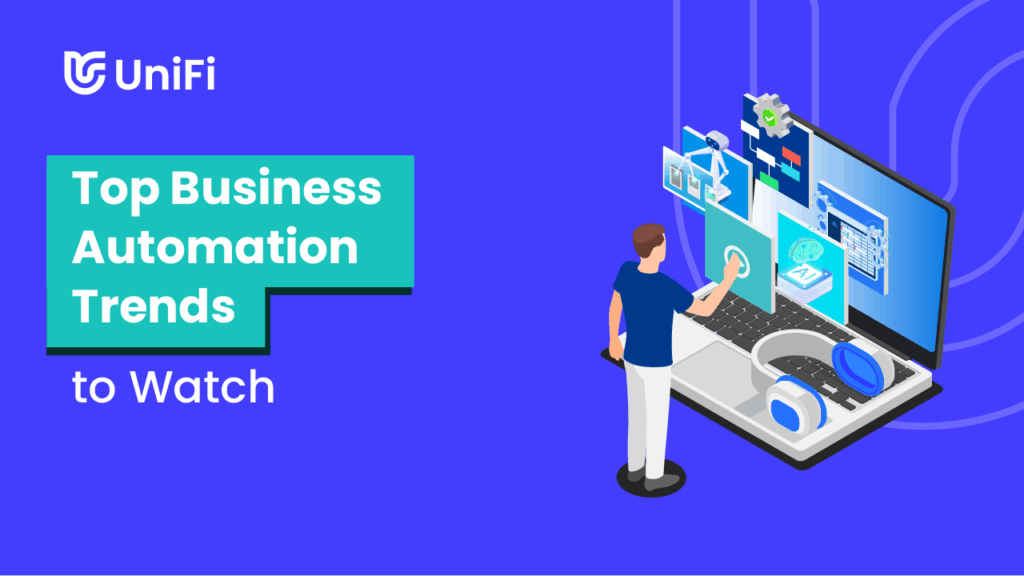Business automation is undergoing a significant transformation, driven by advancements in technologies like AI, machine learning (ML), and robotic process automation (RPA).
As we look towards the future, several trends stand out as pivotal in shaping the future of work and business operations.
Generally, the BPA market will continue to grow.
Gartner predicts that by 2025, 70% of businesses across various sectors will have adopted digital transformation in one way or another to implement data-driven decision-making and improve their operations.
Let’s look at some top business automation trends to watch:
1. Hyper-Automation and AI-Driven Solutions
Hyper-automation is the use of multiple technologies such as RPA, AI, and ML to automate as many processes as possible.
With AI at the forefront, businesses can automate complex, non-repetitive tasks. This shift is crucial as organisations look to improve productivity, enhance customer experiences, and reduce operational costs.
AI-driven automation will become more prevalent as it enables real-time decision-making and process optimisation.
2. Digital Worker-First Processes
The concept of “digital workers” is becoming more central to automation strategies.
These digital employees, powered by AI and RPA, take on routine, repetitive tasks, allowing human workers to focus on more strategic activities that require creativity, problem-solving, and emotional intelligence.
We will see a shift towards designing business processes with digital workers in mind first, driving operational efficiencies and improving scalability.
For example, UniFi comes with UniFi Bot Users for autonomous processes. These are robot users designed to mimic the activities of human users.
Running in the background, these bots can imitate and perform routine actions that generally take a chunk of your team’s valuable time.
Whether it’s data extraction, managing complex schedules, or a more generalised recognition service, UniFi Bots empowers your team to focus on strategic tasks while the bots handle the rest.
3. Generative AI and Intelligent Automation
Generative AI has rapidly gained traction, allowing businesses to create automation processes based on natural language prompts.
This development empowers both technical teams and non-technical users to use no-code or low-code platforms to design automation workflows.
By 2025, it’s predicted that generative AI will play a role in automating tasks in 90% of companies.
4. Rise of No-Code/Low-Code Platforms
The democratisation of automation through no-code/low-code app builders is another game changer.
These platforms lower the barrier to automation adoption by enabling business users to build their own automated processes without deep technical knowledge.
This trend will not only speed up automation efforts but also foster innovation at the departmental level.
5. Shifts in RPA
With more innovative Robotic Process Automation platforms such as UniFi coming into the market, we can expect a rise in RPA migrations from legacy providers. There are several key drivers behind this trend:
- Lowering the Total Cost of Ownership (TCO) and Operational Expenses (OPEX): Businesses are increasingly seeking cost-effective solutions to reduce the financial burden associated with traditional RPA.
- Expanding Automation Capabilities: The integration of low-code/no-code platforms allows organisations to broaden automation initiatives, extending beyond traditional RPA to more comprehensive digital transformation strategies.
- Simplifying Automation for Business Users: By making automation tools more accessible, companies aim to empower non-technical users to contribute to large-scale automation projects.
- Enhancing Compatibility with Existing Systems: Organisations are looking for automation tools that better integrate with their current infrastructure, leveraging prior investments in enterprise architecture and product suites for smoother operations.
6. Cloud-Native and Platform-Based Automation
Businesses are increasingly looking for unified, end-to-end automation solutions hosted in the cloud.
Cloud-native platforms provide the flexibility needed for scaling automation, supporting hybrid workforces, and integrating various AI and RPA tools.
This holistic approach allows businesses to handle complex workflows and data seamlessly across different systems and applications.
7. Focus on Governance, Security, and Compliance
As automation becomes more integrated into core business processes, ensuring ethical use and compliance with environmental, social, and governance (ESG) standards is paramount.
Organisations will focus on strengthening governance frameworks around automation to ensure data privacy and compliance with evolving regulations.
8. Intelligent Document Processing (IDP)
The rise of intelligent document processing (IDP) is another critical trend. IDP allows businesses to turn unstructured and semi-structured documents into machine-readable data, enabling automation of document-heavy processes.
A typical (and a more advanced) version of this is UniFi Autonomous Data Capture.
UniFi Autonomous Data Capture offers advanced intelligent document processing that requires no user input. Operating seamlessly in the background, it allows you to set authorisations at any stage of the workflow as needed. With this powerful tool, you can extract data from your documents at an unprecedented scale.
Unlike typical OCR software, UniFi Autonomous Data Capture takes the hassle out of any document handling processes, freeing up your time for more critical tasks.
As businesses become more data-driven, the need to automate document processing for tasks like invoicing, contract management, and compliance will increase.
This will greatly enhance productivity and accuracy
UniFi’s Role in the Future of Automation
UniFi is well-positioned to help businesses stay ahead in this evolving space.
UniFi supports, enables, and even pioneers the above trends, empowering companies to streamline their processes and enhance decision-making.
The platform’s next-gen automation capabilities, combined with its end-user-friendly no-code app builder, allow businesses to quickly adapt to market changes and regulatory requirements, driving efficiency and scalability.
Organisations that embrace these trends will lead the way in redefining how work gets done, ensuring resilience and competitive advantage in a fast-evolving world.


